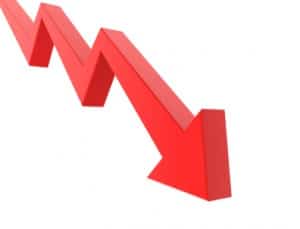Car loans, mortgages, credit cards, and even your apartment rental application can only be approved when you have a solid credit history.
If your credit score is deemed too low by lenders, landlords, and other companies that check your credit score as part of the application process, you could be missing out on low interest rates or be denied altogether.
Fortunately, there are some ways to work around a credit score that might be too low.
When your credit score drops below 620, you need to take steps to improve your credit and boost that score as quickly as possible.
A FICO score of 700 or higher puts you in the “Good” credit categories; while a FICO score of 760 or better is “Excellent.”
Here’s what you need to do when you find that your credit score is too low:
Check your credit report for any errors or mistakes.
Head to www.annualcreditreport.com to order a copy of your credit report and make sure it’s free of any errors or mistakes.
Sometimes banks and other financial institutions simply post the wrong information or forget to include some vital data (such as your credit limit) that would otherwise boost your credit score.
Notify any creditors or financial institutions of mistakes you found and then report the errors to each credit bureau (Equifax, Experian and Transunion).
Stop applying for store credit cards.
When you’re trying to build or fix credit, you just need one or two good credit card accounts and keep a low balance on them.
Avoid the temptation of having several store credit cards and pick just one or Visa or MasterCard accounts with a low interest rate as your main card(s).
Remember that every credit card application you file will take a few points off your credit score and will be listed as a hard inquiry on your credit report.
Keep track of your bills.
Late payments of 30 days or more will get posted on your credit report and affect your credit score. Keep good track of bill due dates so that you can avoid late payments altogether and keep your credit score in good shape.
If your credit score is very low, you might have struggled with making payments on time in the past. Take the time to list when everything is due so you don’t have to pay a high price for late payments.
Even better, consider setting up your bills on automatic bill payment so that no obligations are forgotten, overlooked or accidentally paid late for some reason.
Pay with cash as often as possible.
This is easier said than done for most but it’s a habit that will help you steer clear of debt and also improve your credit score. Create a realistic budget that allows you to spend only the cash that you have.
Relying on credit is a dangerous financial habit regardless of what your credit score may be, so break it now to put yourself in a better financial situation.
Pay down credit card debt quickly.
In an ideal world, you’d be able to pay off your credit card balances in full every month. But that may not be realistic – at least initially – for most people. So the next best strategy is to keep your credit card balances to a minimum.
Try not to charge more than 30% of your available limit on any one credit card. Your credit score will go down if you carry very high balances, so do what you can to pay down that debt to below that 30% mark.
Keeping balances low and focusing on spending only cash can make it easier to manage your budget – and also improve your credit score.










